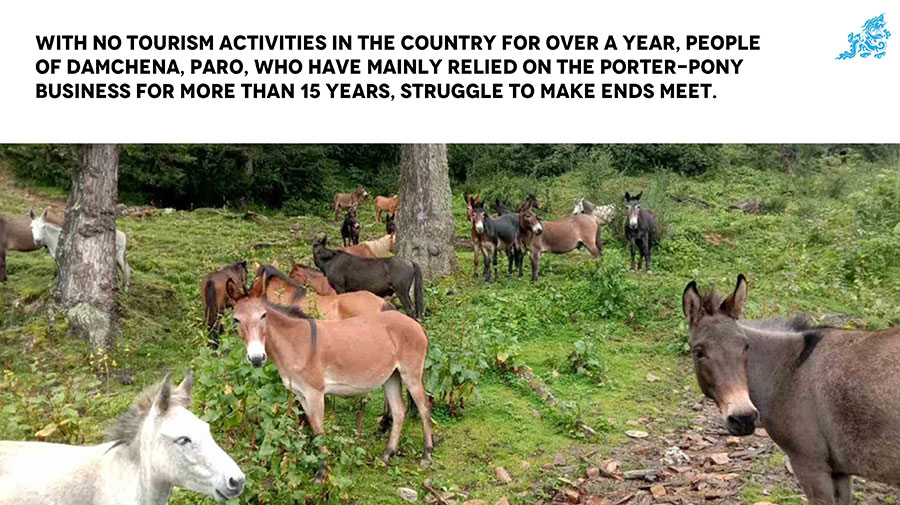Choki Wangmo
With decreasing apple yield and vegetables lost to wild animals, people in Damchena, Paro, thrived on porter-pony business for more than 15 years.
The village with 20 households has more than 300 ponies, catering to tourists.
Without tourism activities for over a year in the country due to the Covid-19 pandemic, villagers say that their livelihood is gravely affected.
A village elder, Sonam, has 15 horses and has been providing pony services to trekkers. In the tourist season, he earned about Nu 300,000.
In the past year, his ponies remained idle and it became difficult for him to buy feed and hay. A DCM trip of hay costs Nu 7,000. He has to buy more than five trips of hay.
He said it is difficult to manage expenses. “Even when there is no work, we cannot abandon them.”
With movement restrictions, he could make two trekking trips recently. His earnings were not even Nu 10,000. “Except for a few, many Bhutanese don’t use porter-pony services. Even if they avail, it is at a minimal fee,” he said.
Another villager, Pasang Dorji, said that since the business was lucrative, all households availed loans to buy horses. “Since I anticipated more tourists in 2020, I planned to buy more although I already owned 20 horses. We are hoping the situation improves.”
A pony costs about Nu 50,000 while a mule costs more than Nu 100,000.
Pasang Dorji said he went to the southern dzongkhags to provide pony services for mandarin exporters last winter. “It was not profitable because of poor yield and Covid-19 restrictions. I earned about Nu 50,000 in two months”
Some villagers had to pay a penalty for the nuisance caused by their ponies.
A horse contractor of Damchena Trekking Horse and Mule Service, Cenda Dorji, said that in the past months, a villager couldn’t pay fines for 20 horses that damaged crops. “It has been a struggle for people. Horses stray in the town areas and the municipality comes after us.”
A penalty is Nu 500 a horse.
He said that if the local tour operators and the government could engage pony service providers in development activities in rural areas, it would support them in sustaining until the tourism reopens.
Most of the porter-pony service providers are recipients of the Druk Gyalpo’s Relief Kidu.


